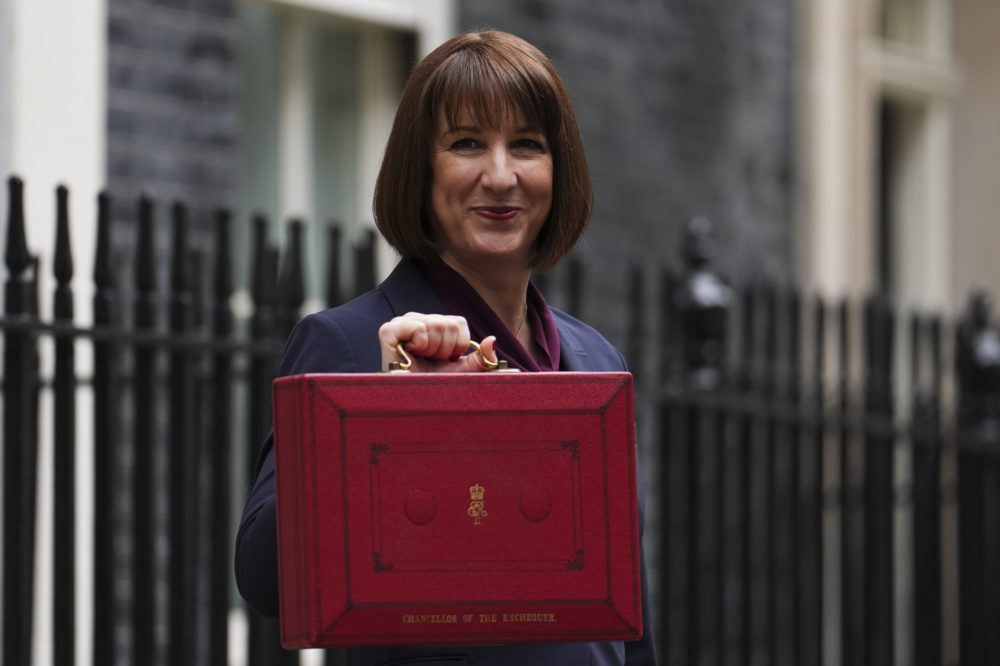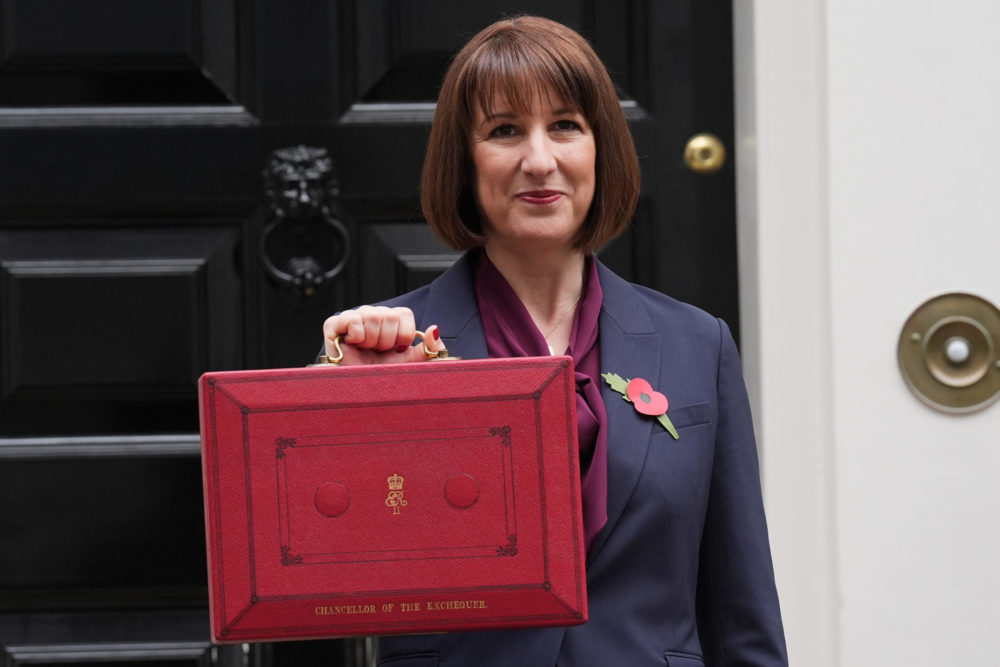‘Budget not something I want to repeat ever again’ – Reeves

Rachel Reeves has said she does not want to repeat the £40 billion tax rises she implemented in her first Budget “ever again”.
The fiscal announcement was a chance to “wipe the slate clean” following the Conservatives’ time in power, the Chancellor told broadcasters as she defended the Budget on Thursday morning.
Choices made by Ms Reeves will see the overall tax burden reach a record 38.3% of gross domestic product (GDP) in 2027-28, the highest since 1948.
Predictions
Despite Labour’s promises to protect “working people”, a £25.7 billion increase in national insurance contributions paid by employers is likely to reduce wages and lead to job losses.
Asked about the consequences of the move, the Chancellor told BBC Breakfast: “I said that it will have consequences.
“It will mean that businesses will have to absorb some of this through profits and it is likely to mean that wage increases might be slightly less than they otherwise would have been.”
Ms Reeves plans to pour more public cash into schools, hospitals, transport and housing – and will change the way government debt is measured to allow her greater borrowing flexibility.
Fiscal watchdog the Office for Budget Responsibility (OBR) has however predicted the measures will be unlikely to lead to the longer term boost in economic growth the Government wants to see.
And influential economics think tank the Institute for Fiscal Studies (IFS) has said she may need to raise taxes again in future if her “gambles” on spending do not result in growth.
“This Budget was to wipe the slate clean after the mismanagement and the cover-up of the previous government,” Ms Reeves told Times Radio.
She added: “I had to make big choices. I don’t want to repeat a Budget like this ever again, but it was necessary to get our public finances and our public services on a stable trajectory.”
Anger
The Chancellor was also unable to say whether her pledge at the Budget to raise income tax thresholds after 2028 was guaranteed.
“I’m not going to be able to write future budgets,” she said.

Shadow chancellor Jeremy Hunt meanwhile said his counterpart had angered many people, who felt she had not lived up to the spirit of Labour’s manifesto promises not to increase taxes for working people.
“Many people thought this was a new Labour prospectus, not a traditional tax-and-spend prospectus, and they have woken up to a Chancellor who has given us the biggest tax-raising Budget in history,” Mr Hunt told BBC Breakfast.
The Government’s spending measures are expected to provide a temporary boost to GDP, according to the OBR’s forecast.
But the watchdog predicted downgrades in subsequent years, and said the Budget measures will add to pressure on inflation and interest rates.
IFS director Paul Johnson warned Ms Reeves may have to come back for “another round of tax rises in a couple of years’ time – unless she gets lucky on growth”.
Papers react
The nation’s papers have delivered a mixed response to Labour’s first Budget in 14 years, with Chancellor Rachel Reeves’s announcement of £40 billion a year in extra taxes coming under particularly heavy scrutiny.
The Daily Express is not a fan of the Chancellor’s strategy, dubbing the scale of unveiled tax hikes “extraordinary”.
A leading article particularly lambasts the Government’s hike in national insurance contributions paid by employers and warns the consequences for workers will be “gruesome”.
“Labour has embarked on an epic experiment with your money,” the paper says.
“For the good of us all, we hope it works.”
“Mendacity”
The Daily Telegraph is in lockstep, accusing Labour of going against its election manifesto pledges.
An editorial states: “If a first Budget is a defining moment then this one was characterised by mendacity.
“The election promise not to raise National Insurance was broken, the pledge not to fuddle the figures to allow for more borrowing was abandoned and the claim of a £22 billion ‘black hole’ was exposed as the shameless political fiction everyone knew it to be.”
Labour’s Budget “threatens stagnation”, according to The Times, which asks: “Where’s the growth?”
A leading article says the Budget represented “a familiar definition of Labour in power”, pointing to “the highest tax take on record, higher borrowing, higher spending on schools and hospitals, and a bill underwritten by employers and the asset-rich”.
The paper also accuses Labour of u-turning on its pre-election promises, writing: “Whatever she now claims, not once did Ms Reeves ever indicate that she planned to raise an additional £25 billion from higher rates of national insurance on employers.”
“Bold”
Conversely, the Daily Mirror calls the Budget a “bold, confident” package that “addressed the incredible damage caused by 14 years of Conservative austerity, injustice and neglect”.
The paper’s leading article highlights Ms Reeves’s “hard decision” to raise taxes “in order to provide the funding our schools and hospitals so desperately need”.
It describes the decision as one which “will not be universally welcomed but it is categorically the right one”.
“Ignore the squeals of the wealthy having to pay more,” the paper says.
“The Chancellor instinctively understands that improving education, reducing waiting lists, raising wages and building more homes are not just the foundation of a fairer society, but also a more prosperous one.”
The Independent, meanwhile, calls it a “gamble”, writing the Halloween package is “as much trick as treat”.
An editorial says the Budget “was impressive in its presentation”, but adds: “Never before has a chancellor ramped up taxation by so much in peacetime, with commensurate increases in public spending and borrowing.
“If the public does experience a tangible improvement in its services, then the ‘gamble’ may well pay off for Ms Reeves, in economic and political terms.
“If not, and the voters find the tax burden so intolerable that they contemplate a more radical approach to the size of the public sector, then Ms Reeves’s gamble will have failed, and she will have run out of excuses.”
Support our Nation today
For the price of a cup of coffee a month you can help us create an independent, not-for-profit, national news service for the people of Wales, by the people of Wales.






All the laws of perverse outcomes and unintended consequences could be triggered by parts of the Reeves Budget. Those increased employment costs will have obvious knock on effects on cost of living. Small businesses may try to absorb some increased costs but will find growth opportunities inhibited. Big businesslike retail and services, will pile it on selling prices and stoke the fires of inflation. Some price to pay when the money ploughed into NHS may do nothing like ministers expect, extra into that black hole called “Defence” is speculative, and Milliband’s net zero fest will be a bonanza for the… Read more »